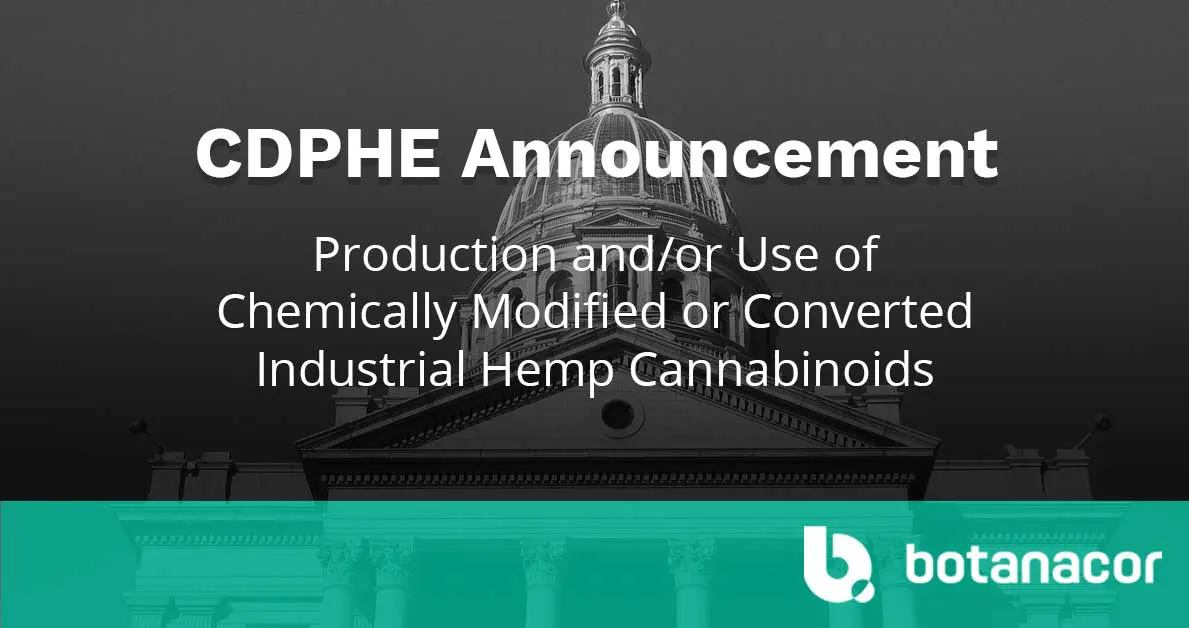On May 14th, 2021, the Colorado Department of Public Health and Environment (CDPHE) released guidance on the production/use of chemically modifed or converted industrial hemp product.
Key Takeaways:
- Chemically modifying or converting any naturally occurring cannabinoids from industrial hemp is non-compliant with the statutory definition of “industrial hemp product.”
- Tetrahydrocannabinol isomers such as Delta-9, Delta-8, and Delta-10 THC are not allowed in food, dietary supplements or cosmetics.
In light of new Colorado regulatory developments regarding Delta-8, our testing methods and services will not change. We will confidentially quantify and separate cannabinoids, such as CBD, Delta-8 and Delta-9, using our validated methods, as we always have.
Now, more than ever, accurate laboratory analysis is critical to businesses that want to succeed in a regulated marketplace.
The full CDPHE notice is below.
May 14, 2021
Re: Production and/or Use of Chemically Modified or Converted Industrial Hemp Cannabinoids
Dear Stakeholders:
Today, the Marijuana Enforcement Division (MED) provided clarification to licensees regarding the production or use of chemically modified or synthetically derived tetrahydrocannabinol (THC) isomers (including Delta-8, Delta-9, and Delta-10-THC) originating from Industrial Hemp precursors such as CBD isolate. Like MED, we have received numerous inquiries and want to ensure we are responsive to the issues and concerns.
The Division of Environmental Health and Sustainability (“Division”) within the Colorado Department of Public Health and Environment (“Department”) is providing this notice to industrial hemp registrants to clarify that chemically modifying or converting any naturally occurring cannabinoids from industrial hemp is non-compliant with the statutory definition of “industrial hemp product.” This includes any process that converts an industrial hemp cannabinoid, such as CBD isolate, into delta-9, delta-8, delta-10-THC, or other tetrahydrocannabinol isomers or functional analogs.
Additionally, a complete profile of reactionary byproducts has not been established in association with the conversion or creation of delta-9, delta-8, delta-10-THC; therefore, insufficient evidence exists to determine whether or not any toxic or otherwise harmful substances are produced during these reactions and may remain in the regulated industrial hemp products ingested or applied/used by consumers. Therefore, these tetrahydrocannabinol isomers are not allowed in food, dietary supplements or cosmetics.
Authority:
Section 25-5-426(1)(g.3) & (g.5) and 25-5-426(4)(d), C.R.S.
The Department and Division is aware that this communication may not answer all outstanding questions. We will host stakeholder conversations on this topic as necessary to provide further clarification.

